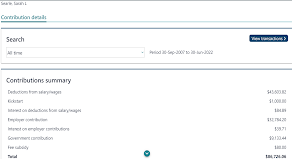Debt consolidation, is it a good idea? All you need to know.
Debt Consolidation, is it worth it? What are the pitfalls? Is it too good to be true?
This subject comes up time and time again. People ask me "Should I put all my debts into one simple payment"
Banks and Finance Companies rely on the fact that, if they make things simple, it doesn't matter how much it costs.
There are a number of things to consider:
- what are the debts you are wanting to consolidate?
- why are you wanting to consolidate?
- will it mean you are paying less?
- will it help you get ahead?
When we look at the first question, think about what debts you have and ask yourself: Are you paying interest on them now? Are they growing? If the answer is no to either of those questions then you shouldn't get a debt consolidation loan to pay them. You will be more in debt than you are now.
If you are being charged interest on an existing debt, eg. car loan, personal loan, store card, that means most of the interest is paid at the beginning of the term, you would have already paid a lot of interest on the debt, now, by consolidating it into one loan you are starting from scratch and paying interest all over again on the same debt.
When looking at what debts you are wanting to consolidate, be careful about consolidating normal monthly bills, if you get behind with them, make an arrangement with the company you owe money to and pay it off a little at a time, and they will not charge you interest.
If you are wanting to pay off student loans, fines, IRD or WINZ loans, don't stress about paying them off early, if your payments are too high, make an arrangement to adjust them to levels that are appropriate. These have no interest added to them and if you add them to a debt consolidation they will have heaps added to them and you will pay more, so your debt will increase.
Debt consolidation loans work on the principle that you pay less each week/month than you are paying now, however they also work on the principle that you will pay substantially more than you pay now to pay the same debt. I have an example below to show you what I mean.
A debt consolidation loan will increase the debt you owe by a substantial amount, I have used them myself before and it has taken forever to get out of the situation they have put me in. Here is an example using a typical debt consolidation loan scenario.
Current debts
Personal loan $10,000 Repayments $233/month term 5 yrs total $13,980
Student loan $25,000 Repayments $125.41/fortnight term 7yrs 10 mths total $25,000
Power arrears $1,000 Payments $100/fortnight term 10 fortnights total $1000
Internet arrears $1,000 Payments $100/fortnight terms 10 fortnights total $1000
total debt $37,000 total payments $937/month total $40,980
Debt consolidation
total debt $37,000 Repayments $937/month term 7 yrs total $78,602
This is based on a debt consolidation interest rate of 19.99% but many are way higher than that.
As you can see, by paying the same amount the loan term increases and the total to pay is over double the original debt. It is imperative that you make arrangements with the people you owe money to and make it affordable for you rather than going down this path.
I hope this helps you, please feel free to follow, share, like and comment my blog.




Brilliant as always. Love the example of loans and repayments.
ReplyDeleteThe difference is actually quite shocking.
ReplyDelete